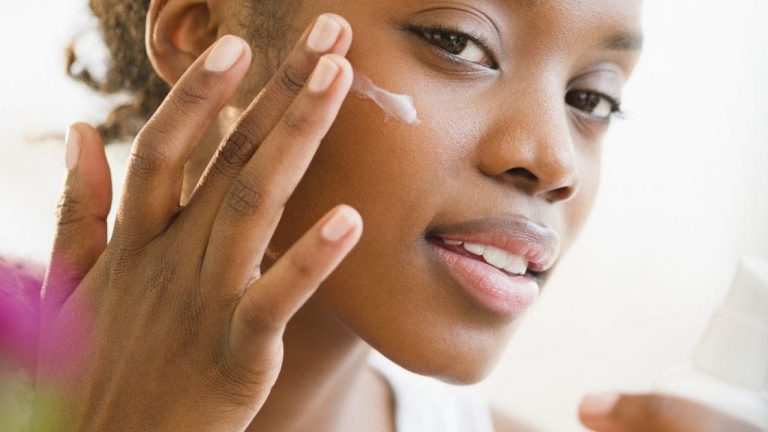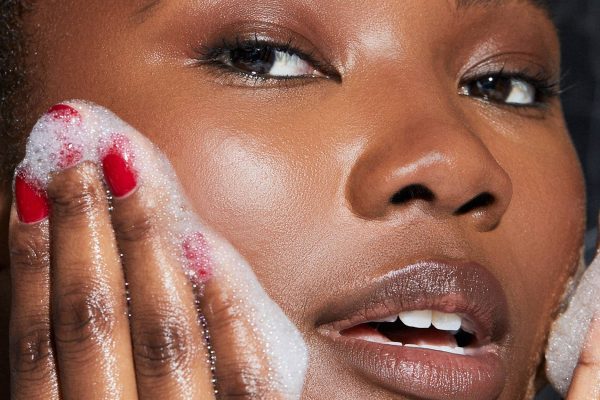Frequent showering, the wrong detergent, scratchy clothing or skin diseases can lead to dry skin. Here we explain which active ingredients against dry skin you should look out for the next time you buy your beauty products!
Dry skin can have many causes. On the one hand, it can be the wrong detergent or the wrong clothes, but also different substances in shower gels, body lotions, etc. To declare war on dry skin, we will tell you to care about the implications that you should look out for the next time you go shopping.
How does dry skin come about?
Sebaceous and sweat glands produce a mix of water and fat daily to keep the skin supple. However, if the sebaceous glands do not release enough fat, the skin loses its ability to function, so it can no longer protect the body from UV radiation, injuries and pathogens. The regulation of body temperature and water balance is also made more difficult.
Other causes of dry skin:
Weather
In the cold, heat and low humidity, the skin loses moisture and dries out more quickly. In winter, the change between dry heating air and cold is a particular strain on the skin.
Water
Bathing or showering for too long and too hot can remove fats from the skin. Frequent hand washing also quickly leads to dry skin.
UV radiation and sunburn
After a long day in the sun, the skin often feels dry and tight. Sunburn, in particular, causes the skin to lose a lot of moisture and damage.
Stress
Emotional stress can affect the immune system, which means that the skin can become dry. So it offers a target for z. B. Skin diseases.
Chemicals and allergy-causing substances
Whether it’s dyed in clothing, detergents in detergents and detergents, or additives such as fragrances and preservatives in cosmetics: there are many chemicals and allergy-causing substances that can irritate and dry the skin. Tight-fitting clothing can also stress the skin.
Hormonal changes
The composition of hormones in the body changes during pregnancy and menopause. This can lead to dry skin. Older people are particularly affected because they store less moisture and are less able to form fats.
Skincare – The right active ingredients against dry skin
For a proper Skincare for dry skin, it ideally needs a combination of oil and moisture. In the case of itchy skin with feelings of tension, it is often moisture that is lacking. An oil-in-water emulsion is recommended here. Flaky, chapped and rough skin, on the other hand, usually needs an oil, so a water-in-oil emulsion is recommended.
Algae
Blue-green algae, red algae or deep-sea algae are purely natural products. They contain many vitamins, minerals and trace elements, improve the skin’s elasticity, have a regenerating effect and improve the moisture penetration of the skin.
Allantoin
The substance allantoin accelerates the regeneration of the skin, has an anti-inflammatory effect and helps against dehydrated skin. There are no allergic or toxic side effects, which is why it is good, e.g. B. neurodermatitis is suitable.
Aloe Vera Gel
The gel is obtained from the fleshy leaves of the aloe plant. Rich in nutrients, it is used in cosmetics primarily for its anti-inflammatory, balancing and soothing properties. The gel provides a lot of moisture and penetrates deep into the horny layer. It is suitable for daily use, e.g. B., as a base under the day cream or Sun protection.
Avocado Oil
Vitamins A, D and E give the skin elasticity and make it supple. The oil has a moisturising, smoothing and moisturising effect.
Bisabolol
The substance bisabolol is obtained from the essential oil of chamomile and has an anti-inflammatory effect on the skin. It is also suitable for use on dry, sensitive skin that is prone to irritation.
Borage
Borage oil is obtained from the borage plant and is particularly suitable for dry skin and neurodermatitis due to its high content of gamma-linoleic acids. It keeps cell membranes soft and absorbent.
Ceramide
The body’s fatty substance is used in more and more creams because it protects against moisture loss and skin irritation.
Collagen
If collagen, e.g. B. as a dietary supplement, stimulates the regeneration of the skin’s collagen fibres. This strengthens the skin’s moisture retention and leads to more elasticity and resilience.
Urea (Urea)
The skin’s natural moisturising factor binds water and keeps the horny layer supple. The substance is also suitable for neurodermatitis because it does not cause allergies.
Hyaluronic acid
Hyaluronic acid is used particularly frequently in facial care because it binds water in the tissue and ensures a plump appearance. In body lotions, the substance also serves as a moisturising factor.
Jojoba
Oil The oil is extracted from the jojoba nut. Due to its unique cultivation, the oil is not rancid, which is why it is often used in cosmetics. It has a high skin tolerance and increases the moisture in the skin.
Cocoa butter Cocoa
butter is easy to spread on the skin and leaves the skin feeling soft and delicate after application. The butter gives a light shine and provides a lot of moisture.
Macadamia nut oil
The macadamia nut is rich in unsaturated fatty acids. Its oil is well tolerated, absorbs into the skin and makes dry and sensitive skin soft and velvety.
Almond oil
The oil is particularly suitable for sensitive and normal skin. It strengthens natural skin protection and protects against weather and environmental influences.
Niacinamide
This substance is also known as nicotinamide or simply vitamin B3. It is suitable for sensitive skin or light acne as it reduces skin redness and strengthens the skin barrier.
Omega-3 and omega-6 fatty acids
Whether ingested through food or applied as a cream: omega fatty acids protect dry skin and strengthen the skin’s protective barrier. They are often used for neurodermatitis.
Panthenol
The substance has become indispensable in skin care. Panthenol has an anti-inflammatory, stimulating, healing-promoting and moisture-retaining effect.
Phytosqualan
This substance is obtained from the olive plant and protects the skin from moisture loss. Squalane is very similar to the body’s skin fat, which is why it is very well tolerated.
Saccharide Isomerate
The substance is a natural moisturiser that binds keratin in the skin and thus retains moisture.
Shea butter
Shea butter is obtained from the nuts of the shea butter tree or karité tree. It spreads well and makes the skin soft.
Vitamin E
The fat-soluble vitamin is known as a cell protection vitamin. It protects against free radicals, increases the skin’s defences and thus prevents premature skin ageing.



